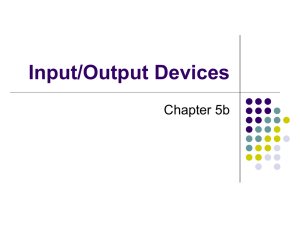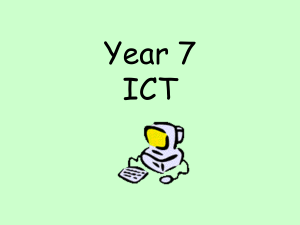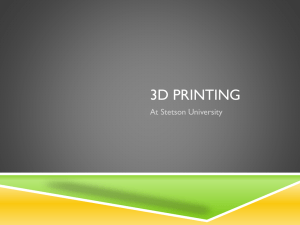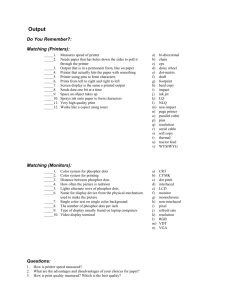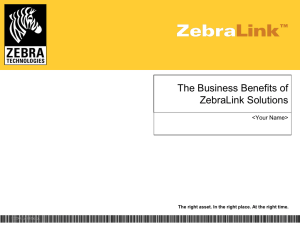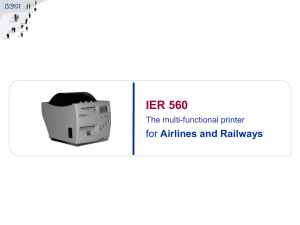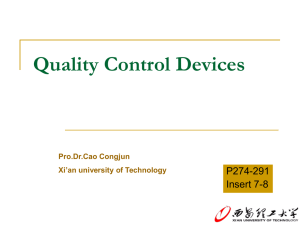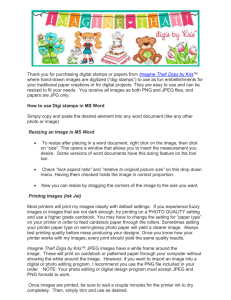InkJet and Thermal Printers
advertisement
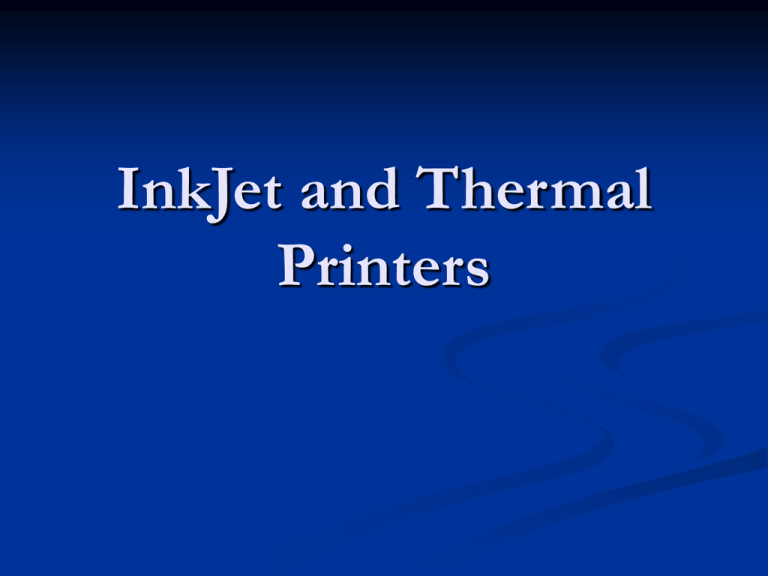
InkJet and Thermal Printers Inkjet Introduction InkJet Printing came about in the late 1980’s Have become the replacement printer for the Serial Dot Matrix in the home Two Main Reasons: Price Color capabilities How it Works Produce characters by squirting a precisely controlled amount of ink onto the paper Dots are extremely small usually 50-60 microns in diameter (Human Hair approx 70 microns) Dots are placed very precisely on the paper in a pattern up to 1440 x 720 dots per inch Dots can be different colors and can be of photographic quality The Printhead Printhead contains a series of Nozzles that put the ink on the paper Ink Cartridge Variety of cartridges depending on the Manufacturer of the printer Multi color in one cartridge Single color in one cartridge Cyan, Magenta and Yellow Some cartridges include the printhead Heat vs Vibration Two basic methods of printing using an inkjet printer Thermal Piezoelectric Thermal Used mostly by Canon and Hewlett Packard Also called Bubble Jet Tiny resistors create heat The vaporized ink creates a bubble which pushes the ink onto the paper Typical Bubble Jet has 300-600 nozzles that can fire simultaneously Piezoelectric Patented by Epson Uses Piezo Crystals at the back of the ink chamber An electrical charge causes the crystal to vibrate Crystal vibrates inward forcing ink out of the nozzle Typically 128 nozzles Speed InkJet printer are NOT known for their speed May be able to printer up to 16 PPM in black Usually takes a couple of minutes to print a color page Thermal Printing Two Types Direct Thermal Printer Thermal Wax Transfer Direct Thermal Transfer Printhead is a heating element Special Paper that reacts to heat Head is passed over paper and heated at the exact moments required to form letters First Faxes used Direct Thermal Printing Now used in POS devices Thermal Wax Transfer Utilizes a wax based ink that adheres to the paper during the heating process Wax Sheet is same size of paper being printed on A wax sheet for each color High quality but usually very expensive Printing Review 4 Methods of Printing 6 Common parts of Printers Know which are impact printers Know the parts of a laser printer Know specifics of each style of printer Know history of printing Know speed of different printers Printing Review Cont’d Know how characters are formed in each method of printing Know which printers can print graphics Know quality of print from each printer type

